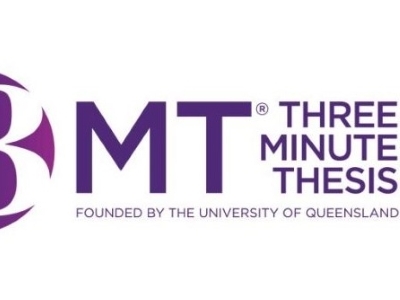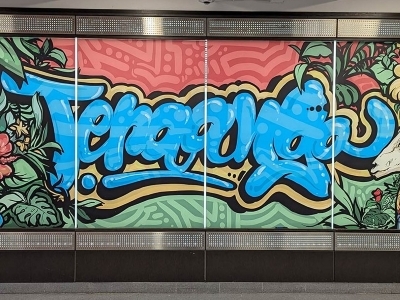–The following story was written by Taia Goguen-Garner.
 Violence and incarceration have become very normalized within society. This violence and imprisonment can also be framed as being for the greater good of the state.
Violence and incarceration have become very normalized within society. This violence and imprisonment can also be framed as being for the greater good of the state.
Master’s student Kyla Piccin is researching carceral abolition in Canada through the lens of Canada’s newest pipeline. Carceral abolition refers to dismantling the logics behind incarceration that are present in Canadian society and colonial contexts.
Piccin’s interest in this research piqued when learning that incarceration and policing are among the most violent forms of state domination as they are not implicit and are very normalized within society. These acts target certain groups of people systemically.
Piccin is using the recently approved pipeline infrastructure, as a lens to ground her hypothesis. Her hypothesis is that land is implicated in carceral logics but that examining of how land is implicated in carceral logics gives us insight into the normalization of the violence of the prison in our everyday lives. She also hypothesizes that the colonial ideological separation between nature and civilization is reproduced through this carceral system in terms of making this distinction of civilized and non-civilized order. She adds that initiatives to protect land, water and nature are criminalized due to this notion of this being unreasonable due to this civilized and non-civilized divide.
“In Canada, the stats are staggering regarding who is being incarcerated and at what rate,” explained Piccin. “It is predominately black and indigenous people in Canada. I found that shocking and alarming as I grew into a consciousness of why we think that incarceration is our primary way of solving social problems such as homelessness and poverty. This really just masks the problem rather than getting at the root of what is really going on. Coming to that realization made it something really interesting to me, seeing why this becomes naturalized and normalized as necessary instead of using alternative means to address these social problems.”
Piccin’s background in International Development Studies, Law, and Policy relates to her current research, as she was able to gain knowledge surrounding how colonial relations endure in the contemporary context and how policing and discipline are one manifestation of that.
“State violence can look like a lot of things,” said Piccin. “In regard to my research, I look at very explicit forms of state violence like surveillance and incarceration. More specifically, I am looking at the pipeline infrastructure as a carceral infrastructure. I see the pipeline as a form of state violence because of the way that the pipeline infrastructure is framed in dominant discourse. Anne Spice, an indigenous scholar heavily influences me. She looks at the pipeline as a critical infrastructure meaning it is critical for national wellbeing. This meaning any resistance can be framed as terrorism as it is compromising the integrity of the nation. I see the pipeline as a form of carceral violence.”
Piccin says that the pipeline is very violent to the surrounding communities as it has the capacity to contaminate water and it violates treaty rights to that land.
A solution to this issue can take form in many different ways. Piccin notes that abolition disrupts the idea that professionals or experts can posit a solution. Abolition instead prioritizes the ongoing abolition work on the ground by activists and community members.
Says Piccin: “I have learned through abolitionists like Angela Davis and Ruth Wilson-Gilmore who speak about investments in other areas of social life such as education, social services, housing, and food security. We have chronic underfunding of these areas but increased funding for policing and building prisons. In the case of Canada and this issue of land, land repatriation to these communities is what I think is central.”
Piccin chose to study within the Institute of Political Economy at Carleton.
“Political Economy helps us think through things like: Why prisons? Why policing? Why now?” expressed Piccin. “Political Economy helps me think through why people are incarcerated and policed, why certain communities are targeted as more at-risk of doing harm and what legitimates higher policing of these individuals.”
Piccin points out that activism is also an important aspect of carceral abolition and Canada’s pipeline as these are the people who at the forefront of this issue. Activists such as Kanahus Manuel and those of the Unist’tot’en camp are very instrumental in bringing awareness to this.
“I plan to look deeper at the Tiny House Warriors which is a group of indigenous women who set up tiny houses on their land in the way of where the pipeline would be to protest.”
Piccin is a recipient of the Joseph Armand Bombardier Scholarship.
“It was really surprising but I never thought I would have won,” said Piccin. “I encourage people to apply if they can’t imagine themselves winning, it can happen. I am very lucky and very grateful.”
Dr. Emily Cameron from the Geography and Environmental Studies Department has been supervising Piccin throughout her research.
“The reason I approached her to be my supervisor is because of her knowledge of information that I didn’t feel totally comfortable with when I first got into this,” emphasized Piccin. “I had experience studying prisons and policing in Canada but not so much this other angle of land and ecology. She has helped me really focus and ground this project while also approaching it with a gratitude and generosity to the literature rather than criticism.”
In regards to Piccin’s future goals, she says she would love to move on to completing a PhD and teach soon after. She would also really like to continue work within carceral abolition by carrying this out in her everyday life through activism on the ground level.
Thursday, April 16, 2020 in Grad Student Research, News
Share: Twitter, Facebook



